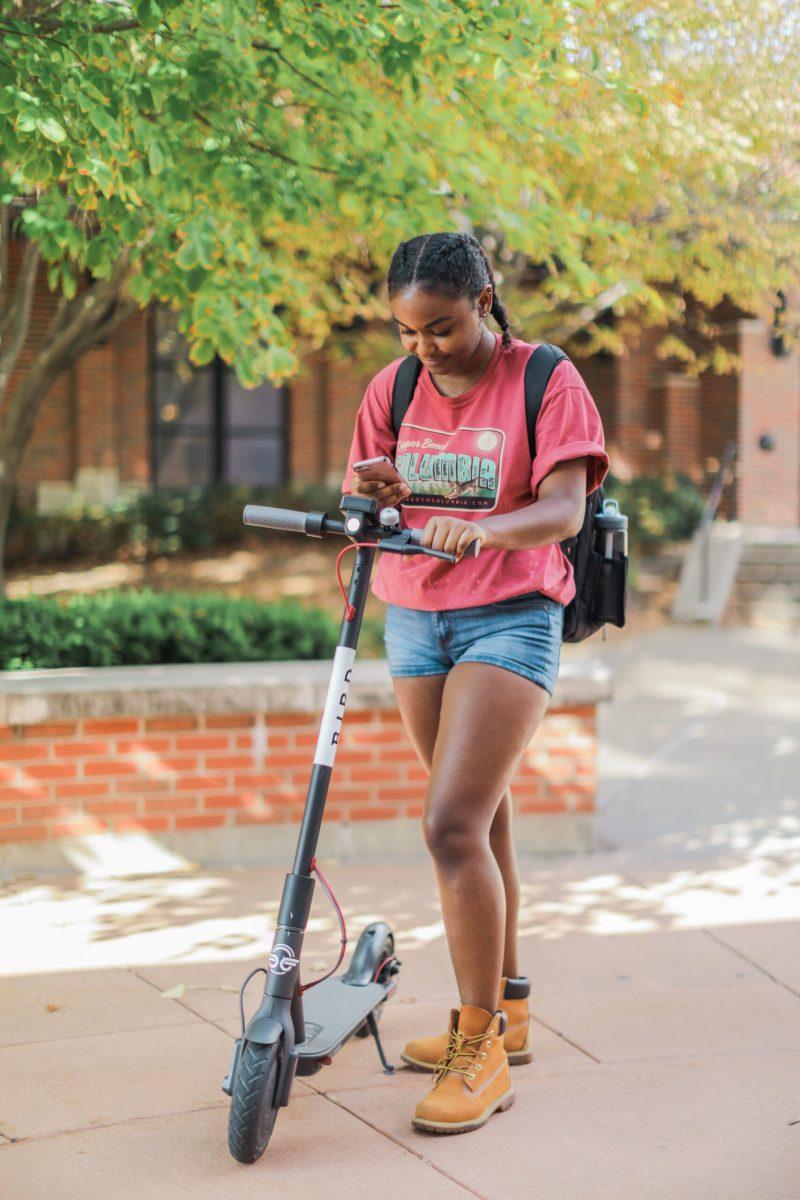As students rolled back into Columbia for fall classes this month, so did a fleet of public-use motorized scooters. Bird, the California-based company that distributed the vehicles, has become a topic of heated debate in Columbia amid safety concerns from university officials.
Before riding, Bird riders are advised to avoid sidewalks, wear helmets, park near curbs or bicycle racks and never to ride after drinking. While the company’s website cites safety as their top priority, there are no means of verification that any of these rules are being followed. Bird offers free helmets to riders who request them.
“Anything that compromises safety that could have been prevented is going to provoke a pretty strong reaction from us,” MU News Bureau Director Christian Basi said.
Basi said that the root of some of the university’s concerns lie in the experiences of other cities and universities with Bird scooters. The vehicles have been either temporarily or permanently banned in a number of U.S. cities, including Beverly Hills, California; Charleston, South Carolina; Cambridge, Massachusetts and Milwaukee.
Basi also mentioned a serious accident involving Bird scooters in Nashville, Tennessee, where the company agreed to temporarily suspend operations earlier this year.
University officials are also nervous about the scooters blocking access to buildings and sidewalks, which compromise the accessibility of the campus, Basi said. This is particularly frustrating, Basi said, for students who need full access to curb cuts and ramps to make their way around campus efficiently.
While Basi says the university is open to the concept of these scooters and the convenience they offer on campus, Bird still needs to discuss how the concept could’ve been introduced to the city. Basi says that there was no notice or consultation with the university before the scooters appeared in Columbia in late August.
Last Friday, MU officials met with the company to discuss their concerns regarding safety and accessibility. Basi says this meeting was “very unproductive,” citing unanswered questions from Bird and relentless promotion of their product.
“They did not respond to any of our questions directly. We asked them to respond to those questions, and we have not yet received a response to those questions,” Basi said. “We did get a single email after the meeting was over and the email basically said something along the lines of ‘We would like to tell you more about our product.’”
MU freshman Luke Mecom has regularly utilized the scooters since they showed up on campus. Mecom says he has no concerns for his own safety, but understands how the scooters could be dangerous when riders speed down hills and weave in and out of people, or have little experience.
“I’m not worried about myself or others. I think I’m good enough at riding them,” Mecom said. “It took me a couple minutes to get confident on it.”
Mecom added that he is in favor of the concept, and that the motorized scooters are no more or less dangerous than riding a bicycle.
“You can go about as fast [as a bike],” he said. “I think they’re a really good thing.”
Mecom says that because he does not believe that the concern for safety should not be a major issue, the scooters should not be banned from campus.
Basi hopes to further communicate with Bird to reach a solution in the near future. The university remains open to the idea, but emphasizes the importance of their concerns with safety and accessibility on campus.
“We’re very open to the idea. We’re very disappointed in the lack of notice, of which there was none,” Basi said. “It’s been a very frustrating experience for something that could have been very positive.”
_Edited by Morgan Smith | [email protected]_














